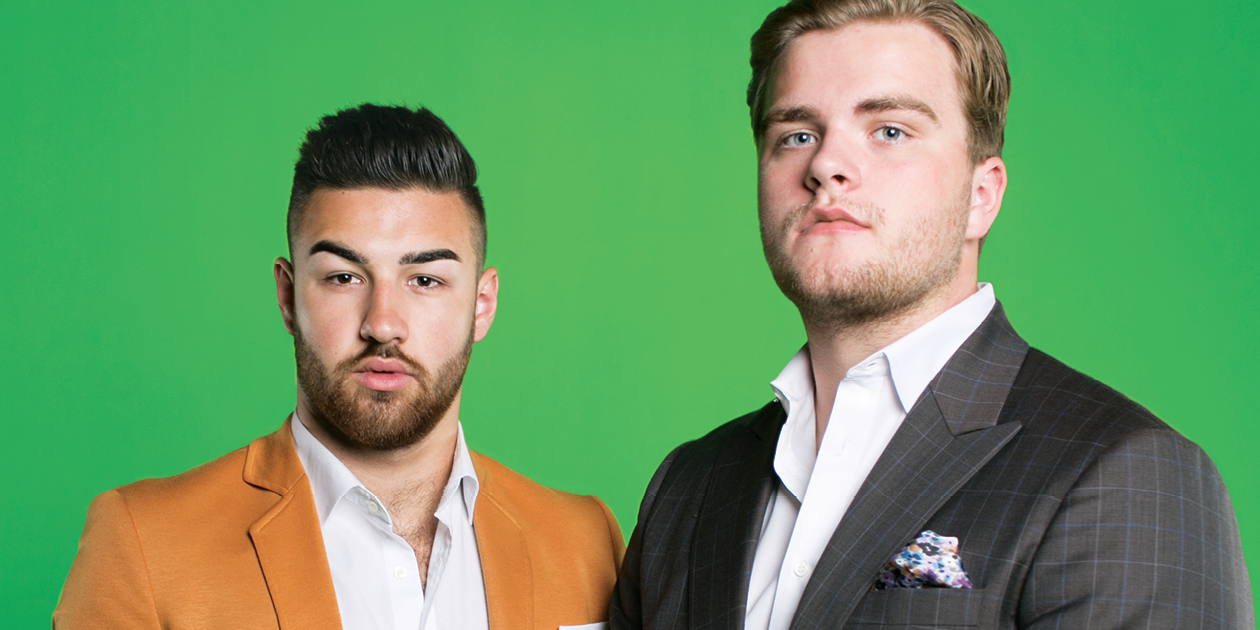 While their classmates were playing hockey and applying to university, Christian Lunny and David Bell were busy pitching clients and sneaking away to their office on lunch.
While their classmates were playing hockey and applying to university, Christian Lunny and David Bell were busy pitching clients and sneaking away to their office on lunch.
Three years later, Dash, the agency they co-founded in high school, is shaking up Winnipeg’s ad scene. In 2014, the agency brought in seven figures in billings from a client list that includes The Museum of Human Rights, EPH Apparel and Aveda Canada. In a small market where most agencies live on the lifeblood of a handful of agriculture and finance clients, Dash has bullishly built its reputation as a forward-leaning digital shop.
Because of its status as new agency on the block, and the co-founders’ ages – Bell is 20, Lunny is 19 – Lunny admits the local industry often perceives Dash as something of a “bull in a china shop.” But the agency is impossible to ignore as it grows its business and picks up new accounts (it recently beat out seven other agencies to land digital AOR status for large local client Granny’s Poultry). This summer, Dash moved into a new, much larger office to accommodate its growing staff – headcount is up to 15 – and is opening its first outpost in Toronto later this month.
One of Dash’s big breaks came last summer when The Canadian Museum of Human Rights – an account Lunny says, “every agency in the city was drooling over” – chose Dash to handle social media for its launch. At the time, the museum was the subject of heated debate for what it was costing taxpayers and the content of its displays. At the height of the debate, Dash was brought in to aid crisis management, eventually turning the conversation around.
In an effort that would later be used by Hootsuite as a case study, the agency convinced the museum to open up a dialogue with even its most zealous detractors; implementing a reply-to-all policy and lowering response rates to social comments under three minutes. The strategy paid off big. According to the case study, Dash’s campaign for the museum reached 23 million people, earned more than 15,000 mentions and helped sell out 9,000 tickets for museum preview tours.
Long before Dash started developing communications plans for brands, Lunny and Bell were turning pet projects into thriving businesses. Lunny, for example, taught himself to code at age nine and launched his first web app when he was still in elementary school. His school had blocked YouTube, so he created a site that let users build YouTube playlists using a separate interface. That proved to be good practice for a company he’d launch a decade later – the streaming service Musi, which now has 150,000 daily users (Bell was previously a partner in Musi, but now focuses solely on Dash). Last year the site introduced an ad program and now delivers over 100 million ad impressions a month.
Bell, meanwhile was a technology vlogger and an early member of YouTube’s partner program. After seeing how his content brought in revenue through YouTube, he enlisted a team of freelancers for his own tech blog, iBellix.com, and turned it into a money-making venture by selling ads.
The two first teamed up when Bell was approached with a gig building a website for a charity event. After successfully delivering on the project, they saw potential to work together more and start a real business. From there, a familial connection landed the boys a meeting at a local Chevy dealership group, which hired them to manage all the social profiles for the company’s dealerships.
Lunny and Bell spent the next couple of years proving their legitimacy one case study at a time. They soon moved on from small projects to securing social media AOR status for established brands like Boyd Autobody and the clothing company Mondetta.
Though Dash now has a strong foothold in Manitoba, Lunny and Bell’s aspirations are anything but regional. As they eye larger accounts, they see their soon-to-be-opened Toronto office as the agency’s future headquarters. “For Toronto, we’re going as big as possible,” Bell says, with Lunny adding they’ve given themselves the goal of hitting the 100 employee mark within five years.
“Five years from now, I hope, we’ll be working with the biggest brands in the world,” Lunny says.











